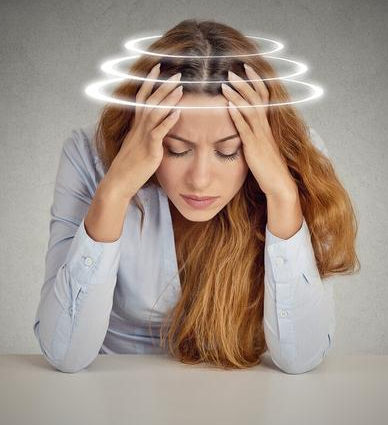
That Sudden Dizziness While Standing Up Is Your Body’s Warning For…
You’ve experienced it countless times – that lightheaded, swaying sensation when you rise from your favorite armchair too quickly. For a few seconds, the room seems to tilt, your vision might spot, and you instinctively reach for something stable. Most of us brush it off as “just standing up too fast” and continue with our day. But what if these brief episodes are actually important warning signals from your body?
As we navigate our 50s, 60s, and beyond, these momentary dizzy spells become more frequent. While often harmless, they can sometimes indicate underlying conditions that need attention. Understanding what your body is trying to tell you could help prevent more serious health issues down the road.
The Medical Explanation: Orthostatic Hypotension
That sudden dizziness has a medical name: orthostatic hypotension (OH). It occurs when your blood pressure drops significantly as you stand up, temporarily reducing blood flow to your brain. Think of it like a water hose – when you suddenly stand it upright, the water takes a moment to reach the top. Your circulatory system experiences a similar challenge when changing positions quickly.
For most people, this is a temporary glitch that resolves within seconds as the body adjusts. But when it happens frequently or intensifies, it’s worth understanding why.
Common Causes Worth Monitoring
Several factors can contribute to these dizzy spells:
Dehydration
As we age, our thirst sensation diminishes, making it easier to become dehydrated without realizing it. Even mild dehydration can affect blood volume and pressure. Are you drinking enough water throughout the day, or mostly relying on coffee and tea?
Medication Side Effects
Many common medications can contribute to dizziness, including:
- Blood pressure drugs
- Diuretics
- Some antidepressants
- Prostate medications
- Parkinson’s disease treatments
Age-Related Changes
Natural aging brings changes to our cardiovascular system. Blood vessels may become less flexible, and the body’s ability to quickly regulate blood pressure can slow down.
When to Pay Closer Attention
While occasional mild dizziness upon standing is usually nothing to worry about, certain patterns warrant medical consultation:
- If the dizziness persists for more than a few minutes
- If you actually faint or fall
- If it’s accompanied by chest pain, palpitations, or shortness of breath
- If it happens multiple times per day
- If you notice other symptoms like confusion, vision changes, or weakness
Simple Strategies for Prevention
The good news is that many cases of orthostatic hypotension can be managed with simple lifestyle adjustments:
Rise Slowly
Practice the “sit and pause” method: When getting up from lying down, sit on the edge of the bed or chair for 30-60 seconds before standing fully. This gives your circulatory system time to adjust.
Stay Hydrated
Keep water nearby and sip throughout the day. If you struggle to remember, try marking a water bottle with time goals or setting phone reminders.
Review Medications
Talk to your doctor about whether any of your medications might be contributing to dizziness. Never stop taking prescribed medications without medical guidance.
Compression Stockings
These can help prevent blood from pooling in your legs, maintaining better blood pressure when you stand.
Physical Counter-pressure
If you feel dizzy upon standing, try crossing your legs like scissors and squeezing your thigh muscles, or gripping one hand with the other and pulling apart. These maneuvers can help raise blood pressure.
The Bigger Picture: What Your Body Might Be Warning About
While most cases of standing dizziness are manageable, persistent or severe episodes could signal more serious conditions:
- Heart problems affecting the organ’s ability to pump blood effectively
- Neurological conditions like Parkinson’s disease or autonomic neuropathy
- Blood sugar issues including diabetes
- Anemia or other blood disorders
- Thyroid disorders
Your body has a sophisticated early warning system, and that sudden dizziness when standing might be its way of getting your attention. By listening to these signals and taking appropriate action, you’re not just treating dizziness – you’re practicing proactive health management.
The next time you feel that familiar lightheadedness when standing up, pause and consider what your body might be telling you. It could be a simple reminder to drink more water or rise more slowly, or it might be encouraging you to have an important conversation with your doctor. Either way, it’s a message worth hearing. After all, paying attention to these small signals today can help ensure you stay steady on your feet for years to come.